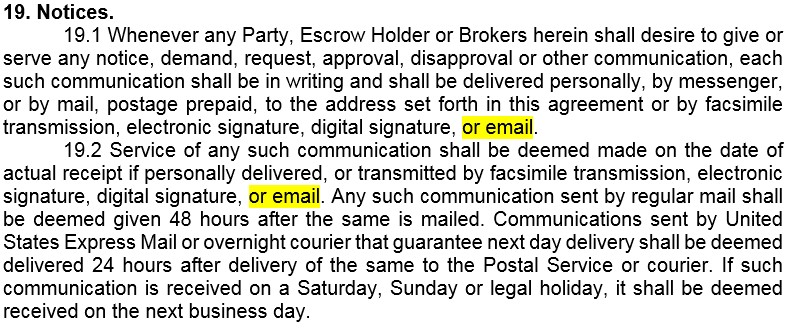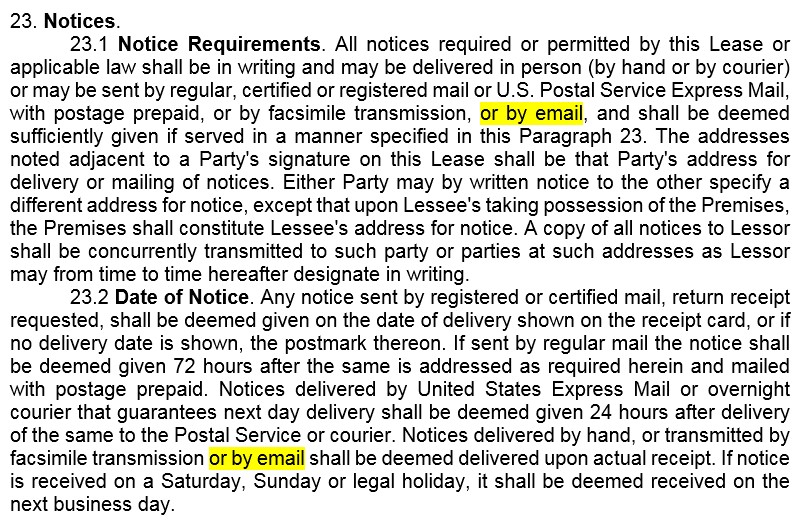Could a quick e-mail from a Buyer’s broker to a Seller’s broker stating “Buyer finds the environmental report unacceptable” accidentally terminate a purchase and sale agreement? Could an e-mail from a tenant’s broker to a landlord’s broker stating “tenant is going to exercise the option” be an unintentional exercise of an AIR option to extend a lease?
The answer to both questions is yes – now that AIR leases and AIR purchase agreements (and many lawyer-drafted real estate contracts) have recently been revised to allow notices to be sent by e-mail.
Attorney-drafted real estate contracts increasingly allow parties to send notices by e-mail. The AIR recently revised its leases and purchase and sale agreements to allow notices by e-mail. By allowing notice by e-mail, parties are no longer required to draft letters on letterhead and send them by fax and mail.
Nevertheless, parties to AIR leases and purchase agreements, as well as their agents (such as brokers, property managers, and attorneys), must be careful in their e-mail conversations in order to avoid an unintentional notice or consent.
Property managers often converse with tenants informally by e-mail. Consider a situation where landlord’s consent is required under the AIR lease for a sublease or an alteration by a tenant. Often, the landlord (or its property manager) will discuss the situation by e-mail. The landlord (or property manager) may wish to give only a preliminary indication that the sublease or the alteration seems acceptable. However, if the landlord (or property manager) in an e-mail uses a phrase such as “sounds good” or “proceed,” the e-mail could constitute written consent.
In the various AIR leases, the notice provision is contained in Paragraph 23 (see excerpt at bottom). In the AIR purchase agreement, the notice provision is contained in Paragraph 19 (see excerpt at bottom).
Whether an e-mail constitutes a termination of an AIR purchase and sale agreement, an exercise of an option to extend an AIR lease, or a consent to a sublease depends on a variety of factors, including how the AIR form may have been modified by the parties. For example, Paragraph 9.3 of the AIR purchase and sale agreement regarding the process for disapproving of a contingency and terminating escrow is frequently amended by the parties. If it has not been modified, a disapproval of some aspect of the Property does not immediately constitute a termination of the purchase and sale agreement.
Real estate professionals are accustomed to sending/receiving dozens or even hundreds of e-mails each day. We may send e-mails without carefully thinking about the consequences and we speak informally in e-mails. Although this modification to AIR forms allows parties to more efficiently provide notice to each other, real estate professionals must be cautious not to unintentionally send a “notice.”


If you have a suggested topic for this blog, or if you have a comment about this post, please click here to send Usman a message.
